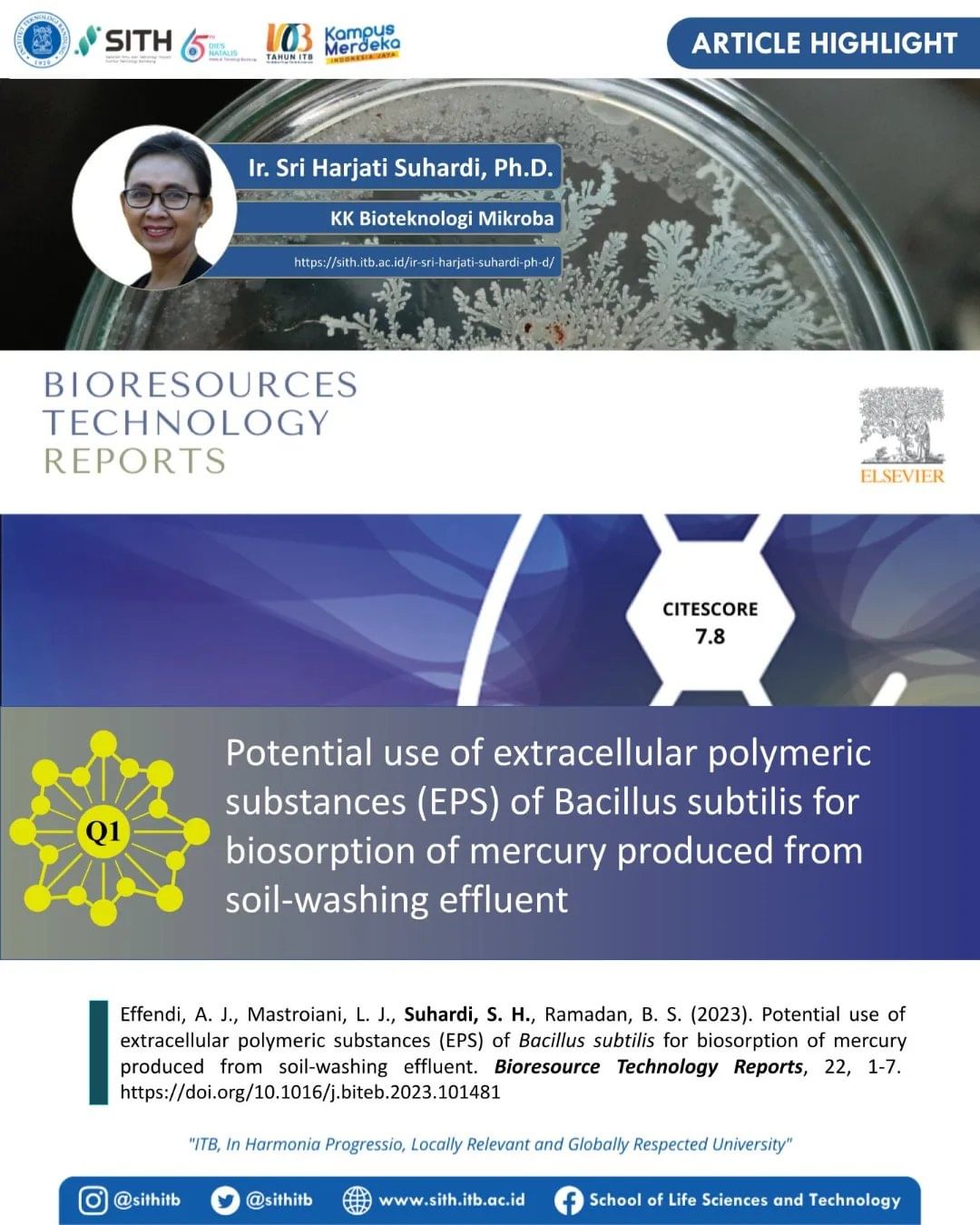Potential use of extracellular polymeric substances (EPS) of Bacillus subtilis for biosorption of mercury produced from soil-washing effluent

Extracellular polymeric substances (EPS) can be used as an effective biosorbent for removing heavy metals from soil washing effluent. In this research by Ir. Sri Harjati Suhardi and her colleagues, Bacillus subtilis was used as an EPS-producing bacteria with a yield of bound EPS of 0.6 mg/g biomass with protein and polysaccharide content of 199 mg/g EPS and 8.8 mg/g EPS, respectively. The maximum biosorption capacities for mercury in artificial wastewater using bound EPS and dead biomass of Bacillus subtilis as biosorbents were 9.32 mg/g and 6.04 mg/g, respectively, at a biosorbent dose of 0.1 g/100 mL. Biosorption using Bacillus subtilis fitted the Langmuir isotherm, while biosorption using bound EPS fitted the Freundlich isotherm. The biosorption process followed a pseudo-second-order kinetic model for both biosorbents. Bound EPS was also feasible to treat soil washing effluent with a biosorption capacity of 2.21 mg/g of mercury. The use of bound EPS could effectively remove mercury from wastewater.
Article Citation:
Effendi, A. J., Mastroiani, L. J., Suhardi, S. H., Ramadan, B. S. (2023). Potential use of extracellular polymeric substances (EPS) of Bacillus subtilis for biosorption of mercury produced from soil-washing effluent. Bioresource Technology Reports, 22, 1-7. https://doi.org/10.1016/j.biteb.2023.101481

